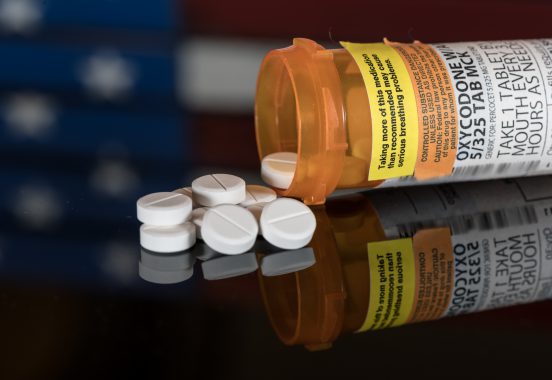NICE announce prescription drug dependence guidelines to cut deaths

NICE is set to develop new guidance for GPs and other health professionals on prescription drug dependence and how to manage withdrawal.
The health body said the recommendations – requested by the Department of Health and Social Care – will help tackle the problem of opioid-related deaths and ‘growing concerns about dependence on prescription drugs’.
The final guidelines should be published in October 2021, NICE said.
Last month, the Government medicines regulator MHRA announced a major review of opioid medicines, which will assess the scientific evidence with the aim of cutting overprescribing and drug misuse.
NICE deputy chief executive and director of health and social care Professor Gillian Leng said: ‘NICE has been asked by the DHSC to develop a guideline covering safe prescribing of drugs associated with dependence, and the careful management of withdrawing from these drugs.
‘In summer 2019, we will recruit a committee to develop this guideline, and consult on a document outlining areas to be included. We expect to publish the final guideline in October 2021, following a detailed review of the evidence and consultation with the public and other stakeholders.
‘With an average of five opioid-related deaths reportedly happening in the UK each day, and growing concerns about dependence on prescription drugs, our evidence-based recommendations will help drive improvements across the health and care system. They will complement existing NICE guidelines in tackling the problem.’
RCGP chair Professor Helen Stokes-Lampard said: ‘Most patients don’t start out wanting to take medication long-term – and GPs don’t want to prescribe it – but for some patients who experience chronic pain, for example, there are few options available.’
She continued: ‘We know that lifestyle changes can be hugely beneficial for patients, but for some patients in pain, even moderate exercise simply isn’t possible – and we know that psychological therapies can sometimes help, but access to these is patchy across the country.
‘This puts GPs, who ultimately just want the best for their patient, in an extremely difficult position.
‘We look to these forthcoming guidelines for clarity as to best practice, safe and evidence-based prescribing of opioids and other dependence-forming drugs – and the alternatives that are available – in the best interests of our patients and the care we can deliver to them.’
Previous NHS Digital data revealed one patient in 11 (8.9%) has been prescribed an addictive medicine.
Pulse July survey
Take our July 2025 survey to potentially win £1.000 worth of tokens

Visit Pulse Reference for details on 140 symptoms, including easily searchable symptoms and categories, offering you a free platform to check symptoms and receive potential diagnoses during consultations.










